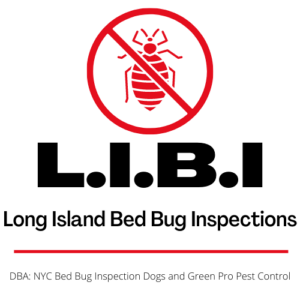Bed bug infestations are difficult enough to handle when you’re a full grown adult. But for children, especially very young children, being harassed and bitten by these blood-sucking pests can be a real nightmare.
With bed bug infestations on the rise across the country it has become increasingly important for parents to understand how best to protect their children from bed bugs and how to treat the inevitable bed bug bites that come with a large scale invasion.
Identifying Bed Bug Bites
Signs of a bed bug bite typically take a few days to present following the initial attack. The lag time between the bite and the tell-tale red welts largely depends on the individual. Some people will react quicker than others, while a small percentage of folks won’t develop any signs of being bitten. Those lucky people are few and far between, however.
Bed bug bites most often appear as lines or clusters of small raised red welts. Sometimes these marks will appear in a zig-zag pattern. At the center of the bumps there will be a puncture mark. Bed bug bites are usually accompanied by localized red patches on the skin which will be irritated and itchy.
Bed Bug Bites and Your Child’s Health
The good news is that bed bugs do not carry or transmit any known diseases. Unfortunately, that’s where the good news ends.
Bed bug bites typically cause itchiness and irritation. For children that can be difficult to deal with and they’ll naturally be tempted to scratch the site of their bed bug bites. Long bouts of scratching can sometimes lead to infections, which can ultimately require a doctor’s care.
That same itchiness and irritation can also lead to sleepless nights, particularly for babies and toddlers. This can take an emotional toll and adversely impact their overall health and well-being. That’s why knowing how to successfully treat your children for bed bug bites is so important.
Treating Children for Bed Bug Bites
Any treatment for bed bug bites depends on the age of the child and the severity of the bite. What may be a suitable treatment for an adult might not be the best choice for a toddler or adolescent.
The most effective treatments for babies and toddlers includes the following:
- Cleaning the affected area with soap and cool water
- Applying ice packs or cold compresses to the affected area
- Applying baking soda paste on the bites
- Applying child-safe over-the-counter antiseptic creams
There are a few more treatment options for older kids and adolescents. These can be very effective in treating the symptoms associated with a rash of bed bug bites:
- Applying ice packs at regular intervals
- Applying corticosteroid ointments
- Administering oral corticosteroids as prescribed by a physician
- In cases of secondary infections administering child-safe oral antibiotics as prescribed by a physician
Natural Home Remedies for Bed Bug Bites
Thankfully, bed bug bites don’t present any serious threat to people’s health. The effects can generally be easily managed and there are a few home remedies that can be used to help children (and adults) find relief from the itchiness and irritation.
Here are a few of the more common home remedies that can be used to treat bed bug bites in children and adolescents:
- Baking Soda – Simply mix baking soda in water and form it into a loose paste. This can be applied to the affected area. The mixture will help to alleviate the itching.
- Sandal and Turmeric – Like baking soda, sandal and turmeric can be mixed with water to form a loose paste that can be applied to a bed bug rash. The sandal delivers a welcome cooling affect while the turmeric works as a natural antiseptic.
- Neem Oil – Neem is an essential oil that can be used as a natural bed bug repellent. While it can not prevent or treat a bed bug infestation it can be used to protect people from bed bug bites. Rubbed on exposed skin it can help to ward off hungry bed bugs, protecting sleeping children from potential bed bug attacks.
When to Consult a Doctor
In extreme cases some children may experience allergic reactions to bed bug bites. This is rare, but it does happen – especially among younger children or kids with immune deficiencies. If you notice any of the following it may be wise to consult your family physician:
- Increase in the size of the red welts associated with bed bug bites
- Fever or signs of skin infections
- Respiratory issues or other signs of an allergic reaction
Protecting Yourself and Your Family
A bed bug infestation can take a serious toll on your family’s health and well-being. While it is important to know how to treat the effects of bed bug bites it is equally important to attack the problem at its source. That means taking steps to eliminate the infestation itself.
If you and your children are being attacked by bed bugs contact a professional bed bug inspection and removal service as soon as you can. Schedule an inspection and work with your bed bug removal expert to decide on a treatment that will address the infestation at its source. The sooner you act the sooner you and your family can sleep soundly once again. Free from bed bugs and their irritating bites.
Published by Scott Palatnik
If you believe you’ve brought bed bugs into your home or office, give us a call, we can help!
Now with 2 locations. On Long Island @ 516-619-6149, or in NYC @ 212-299-9186
We are Long Island Bedbug Inspections.
Your Bedbug Inspection, and Elimination solution.


